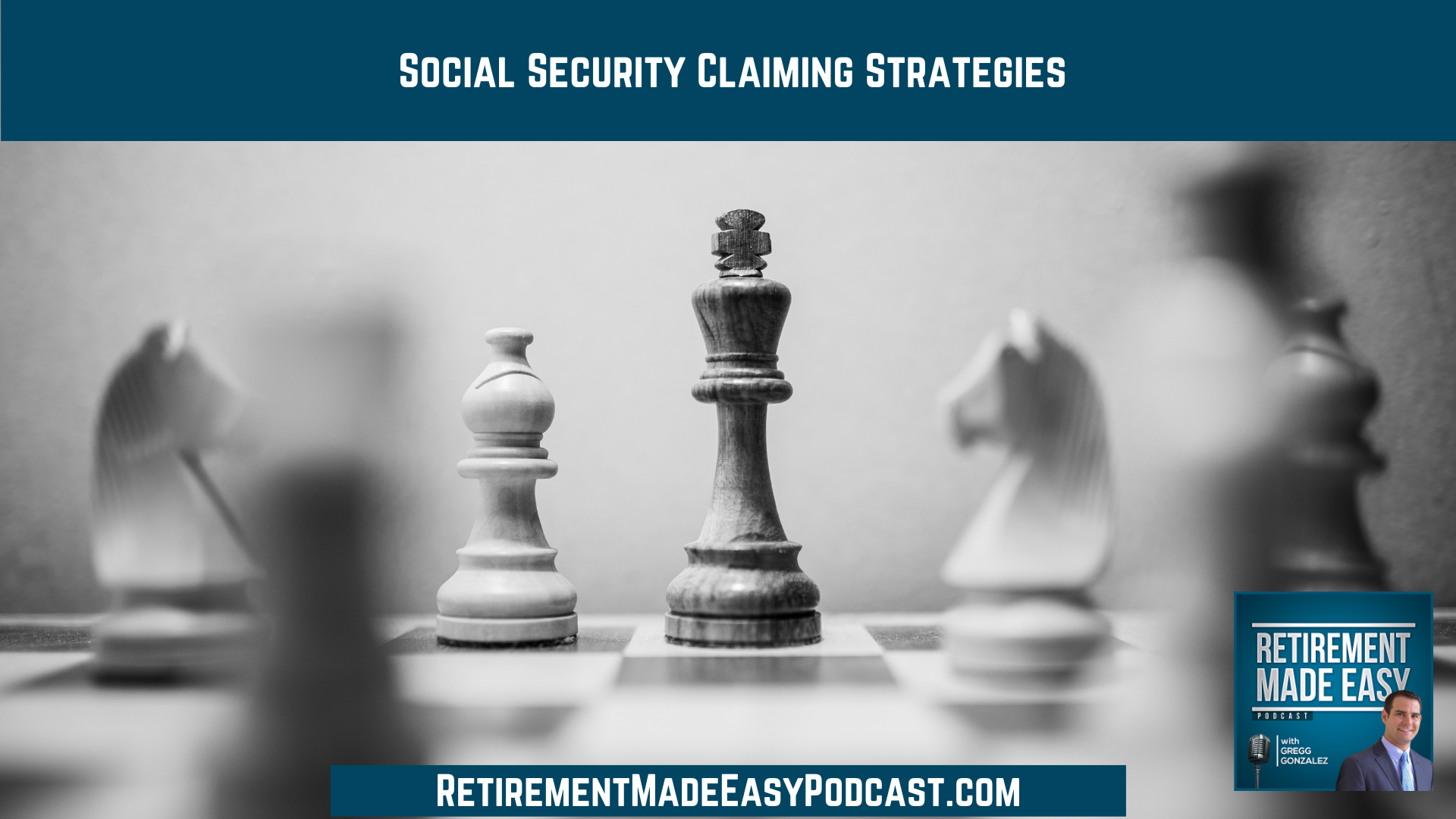
What factors go into the social security claiming decision? How do strategies differ based on your age, health, and marital status? Where do you even start? Social security planning is often neglected—or at the very least not given the attention it deserves.
In this episode of the Retirement Made Easy podcast, I hope to start the conversation about Social Security claiming strategies. I want each of you to be able to make an informed decision with your financial planner. Hit the play button to learn more!
You will want to hear this episode if you are interested in…
- [2:57] Social security planning can’t be neglected
- [5:10] Claiming strategies for single people
- [8:51] Claiming strategies for people still working
- [12:19] The break-even analysis
- [16:13] Claiming strategies for married people
- [20:32] The answer isn’t black and white
Claiming strategies for single people
If you’re single and you’ve never been married, you get to decide between claiming now or later (i.e. as early as 62 or as late as 70). You have to look at different scenarios to see how they will impact your taxes, portfolio, and overall plan. Then you work to find the sweet spot.
Your benefits are based on your best 35 working years. You could retire at 62 and wait to claim Social Security until 70 while living on your nest egg. Then, when you turn 70, you can rely on your Social Security more than your retirement portfolio.
Keep in mind that a single person doesn’t have a survivor benefit. If you pass away unexpectedly at a young age, you won’t get the lifetime benefit of your Social Security check.
Claiming strategies for people still working
If you continue working, the income you earn may reduce your Social Security if you claim it before your full retirement age. For every $2 you earn above $22,320, they withhold $1 of your Social Security benefit. That limit increases every year based on inflation.
I had a client that wanted to claim her benefits at 64. But she was going to be working part-time. Because of that earned income, it didn’t make sense for her to claim her benefit. She would be better off waiting to claim her benefits until her income went down or reached full retirement age.
Once you hit your full retirement age, you can make as much money as you want and claim your benefits and your earnings won’t impact your benefits.
What if you decided to go back to work? If you start your benefits, you have 12 months to stop your benefits and pay them back. They will defer and grow until you turn them back “on.” You can only do this one time.
Claiming strategies for married people
What is the age of each spouse? Are the benefit amounts close? How healthy is each spouse? When we plan for a married couple, we are planning for a joint retirement. Social Security, pensions, and your nest egg will fund that retirement.
What is your tax situation? How will claiming your benefits impact your taxes? Most states don’t tax your benefits but some still do. How much will be tax-free?
If there is a premature death, you need to plan for the surviving spouse. We have to make sure the last person standing is taken care of financially and to live a lifestyle with independence and dignity. One way is through the Social Security survivor benefit.
Secondly, what you’ve saved for retirement can help determine when you claim your Social Security benefits. You can go to SSA.gov to see what your deferral credits look like. If you wait, how much will it grow?
If you were married but divorced but married 10 years or longer, it’s as if you were still married. Generally, you can gain access to your ex-spouse’s social security information to plan your claiming strategy. But you do have to coordinate a meeting with Social Security to learn what your options are.
Many factors need to be considered. There are always special situations like disability, adoption, a disabled child that’s working, etc. The answer isn’t black and white. Hopefully, this episode gave you some ideas to research and talk over with your financial planner.
Resources & People Mentioned
- 3 Steps to Retirement Planning
- Scotty Kilmer on YouTube
Connect With Gregg Gonzalez
- Email at: Gregg@RetireSTL.com
- Podcast: https://RetirementMadeEasyPodcast.com
- Website: https://StLouisFinancialAdvisor.com
- Follow Gregg on LinkedIn
- Follow Gregg on Facebook
- Follow Gregg on YouTube



